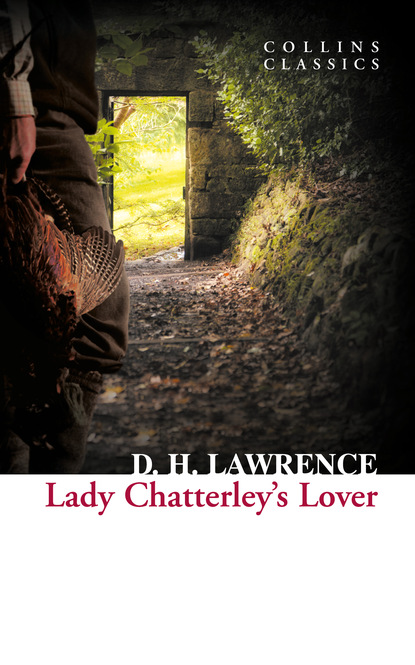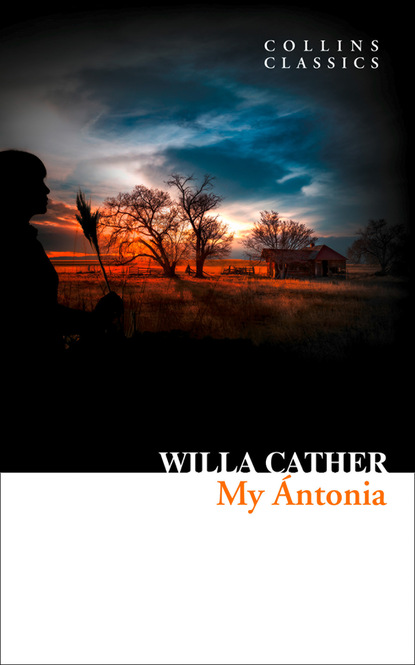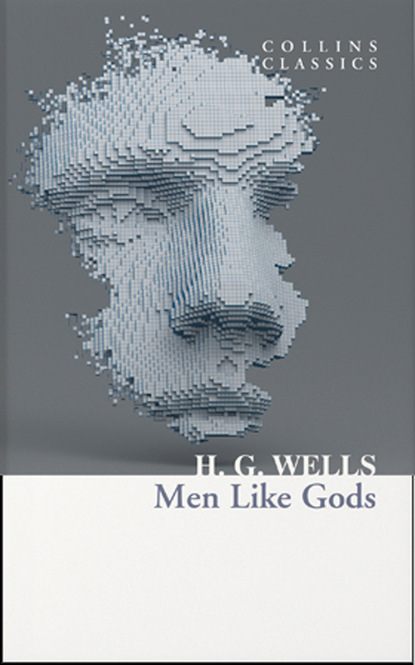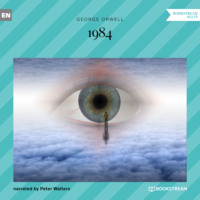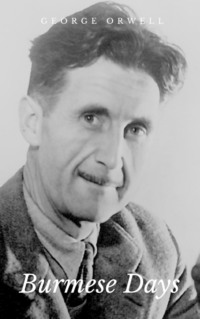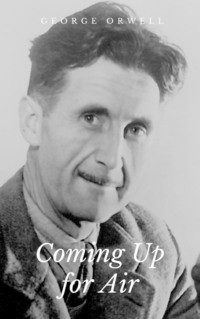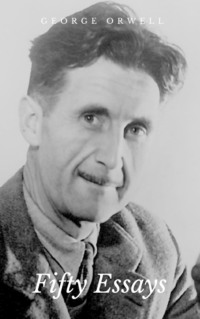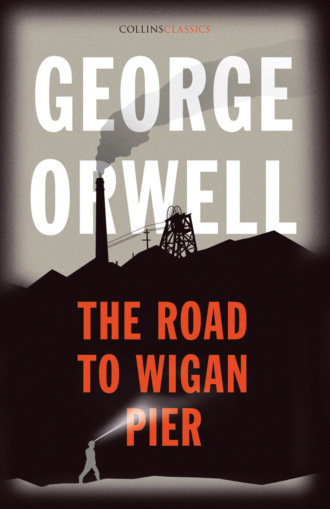
Полная версия
The Road to Wigan Pier

THE ROAD TO WIGAN PIER
George Orwell

Copyright
William Collins
An imprint of HarperCollinsPublishers
1 London Bridge Street,
London SE1 9GF
WilliamCollinsBooks.com
HarperCollinsPublishers
1st Floor, Watermarque Building, Ringsend Road
Dublin 4, Ireland
This eBook first published in Great Britain by William Collins in 2021
Life & Times section © HarperCollinsPublishers Ltd
Fran Fabriczki asserts her moral right as the author of the Life & Times section
Classic Literature: Words and Phrases adapted from
Collins English Dictionary
The text in this edition follows that of the original publication.
A catalogue record for this book is available from the British Library.
All rights reserved under International and Pan-American Copyright Conventions. By payment of the required fees, you have been granted the non-exclusive, non-transferable right to access and read the text of this e-book on-screen. No part of this text may be reproduced, transmitted, down-loaded, decompiled, reverse engineered, or stored in or introduced into any information storage and retrieval system, in any form or by any means, whether electronic or mechanical, now known or hereinafter invented, without the express written permission of HarperCollins
Source ISBN: 9780008443825
Ebook Edition © January 2021 ISBN: 9780008442699
Version: 2021-01-28
CONTENTS
Cover
Title Page
Copyright
History of William Collins
Life & Times
PART ONE
I
II
III
IV
V
VI
VII
PART TWO
VIII
IX
X
XI
XII
XIII
Footnotes
Classic Literature: Words and Phrases
About the Publisher
History of William Collins
In 1819, millworker William Collins from Glasgow, Scotland, set up a company for printing and publishing pamphlets, sermons, hymn books, and prayer books. That company was Collins and was to mark the birth of HarperCollins Publishers as we know it today. The long tradition of Collins dictionary publishing can be traced back to the first dictionary William co-published in 1825, Greek and English Lexicon. Indeed, from 1840 onwards, he began to produce illustrated dictionaries and even obtained a licence to print and publish the Bible.
Soon after, William published the first Collins novel; however, it was the time of the Long Depression, where harvests were poor, prices were high, potato crops had failed, and violence was erupting in Europe. As a result, many factories across the country were forced to close down and William chose to retire in 1846, partly due to the hardships he was facing.
Aged 30, William’s son, William II, took over the business. A keen humanitarian with a warm heart and a generous spirit, William II was truly “Victorian” in his outlook. He introduced new, up-to-date steam presses and published affordable editions of Shakespeare’s works and The Pilgrim’s Progress, making them available to the masses for the first time.
A new demand for educational books meant that success came with the publication of travel books, scientific books, encyclopedias, and dictionaries. This demand to be educated led to the later publication of atlases, and Collins also held the monopoly on scripture writing at the time.
In the 1860s Collins began to expand and diversify and the idea of “books for the millions” was developed, although the phrase wasn’t coined until 1907. Affordable editions of classical literature were published, and in 1903 Collins introduced 10 titles in their Collins Handy Illustrated Pocket Novels. These proved so popular that a few years later this had increased to an output of 50 volumes, selling nearly half a million in their year of publication. In the same year, The Everyman’s Library was also instituted, with the idea of publishing an affordable library of the most important classical works, biographies, religious and philosophical treatments, plays, poems, travel, and adventure. This series eclipsed all competition at the time, and the introduction of paperback books in the 1950s helped to open that market and marked a high point in the industry.
HarperCollins is and has always been a champion of the classics, and the current Collins Classics series follows in this tradition—publishing classical literature that is affordable and available to all. Beautifully packaged, highly collectible, and intended to be reread and enjoyed at every opportunity.
Life & Times
‘What I have most wanted to do […] is to make political writing into an art’ George Orwell claimed in his 1946 essay ‘Why I Write’. Never has such a clearly stated literary manifesto been realised so completely. Achieving moderate success for much of his career, George Orwell’s final two novels, Animal Farm and Nineteen Eighty-Four, swiftly elevated him to the upper echelons of the literary firmament, with his combination of uniquely straightforward prose and deeply political content. The road leading to these two great pieces of political art was, unsurprisingly, paved with years of intense political engagement, in the turbulent decades of the early twentieth century.
Early years
George Orwell was born as Eric Arthur Blair in India in 1903 to Ida Limouzin, a woman of French descent, and Richard Walmsley Blair, a British agent in the Opium Department of the Indian Civil Service. As an infant, he moved back to England with his mother and sister, where he would spend his early childhood among his female relations in the bucolic surroundings of the Oxfordshire countryside.
He attended St. Cyprian’s School, which he despised (for the harsh treatment he received there and its abundance of rich, privileged young children), and later Eton, where he found his persona as the rebellious ‘under-privileged’ scholarship student worked in his favour. Academically, he did not do well at Eton, though he read voraciously. Among his early literary influences were H.G. Wells, George Bernard Shaw, Jack London and Rudyard Kipling. Renowned dystopian author Aldous Huxley –whose work would often be compared to his own in later years –briefly taught him French at Eton. The First World War took place during his time there, leading to an early engagement with world politics that would influence his later views.
Having neglected his studies at Eton, the traditional route of an Oxbridge education was barred for Orwell, and he decided to join the Indian Civil Service upon leaving in 1921. He would later describe the years he spent in Burma as a policeman in the Indian Imperial Police as ‘the wasted years’, although they were crucial in providing him inspiration for much of his writing, as well as providing motivation to succeed as an author, as opposed to spending his life in public service. His time spent as an enforcer of Britain’s imperial rule also sparked his lifelong uneasiness with authority –a factor that played an important role in his decision to move back to England and make a career out of writing.
‘Down and Out’ years
Although –to his family’s dismay –Orwell made clear his writing ambitions upon leaving India, it would be many years before he succeeded in breaking into the literary world. He spent the intervening years honing his craft and gaining life experience in the slums of London, and later Paris. He drew inspiration from his acute study of daily life to draw out larger issues that plagued society; these series of observations would later become the basis for Down and Out in Paris and London (published in 1933).
Returning to England Orwell turned his attention to writing fiction, struggling to adapt his clear, journalistic prose style to novels. The novels he wrote during this time include Burmese Days and A Clergyman’s Daughter. As he would later claim, they were attempts at ‘enormous naturalistic novels with unhappy endings’, which is what he had been accustomed to reading as a boy growing up in the Edwardian era.
The Road to Wigan Pier
During this time, he worked several odd jobs to stay afloat, among them positions as a teacher and a bookseller, all the time continuing to write for various publications, and working on his own projects. In 1936, when Britain was still lumbering out of the Depression with widespread unemployment, especially in industrial and mining towns, his publisher, Victor Gollancz, asked Orwell to work on a project uniquely suited to his talents: documenting the areas of Northern England most affected by the Depression. Orwell spent months immersing himself in the lives of the working poor, living in their boarding houses and going down into the mines with the men. Aside from his astute observations about the minutiae of working-class life, Orwell also delved into the political backdrop of this time, expressing his disapproval not only of fascism, but of socialism, which he viewed as having failed the very people it should have served. This disillusionment was to bloom in the next decade as Orwell witnessed further division within the politics of Europe. His observations culminated in the publication of The Road to Wigan Pier –the first book to bring him substantial critical acclaim and financial gains
The two wars
On the cusp of literary success, Orwell decided to travel to Spain, and, like many of his contemporaries –including American writers John Dos Passos and Ernest Hemingway –take part in the bloody Spanish Civil War. His generation of artists and intellectuals followed the events of the Civil War closely, and it became the battleground for political philosophy as much as physical warfare. Orwell’s commitment to fighting fascism in Spain came under scrutiny, as the various factions of the political left were pitted against each other, which left him feeling that the socialist revolution had been betrayed.
Returning from the war, he became vocally critical of the Stalinist regime, equating their totalitarianism with that of the fascists across Europe. Left-wing publications that had previously embraced him refused to publish his essays, and his account of the Spanish Civil War, Homage to Catalonia, was refused by his editor Gollancz, eventually going to a smaller publishing house, Secker & Warburg.
Having suffered a near-fatal injury in Spain, Orwell’s health continued to deteriorate, and he spent half a year in Morocco recovering, completing his novel Coming Up for Air during his time there.
Despite his disillusionment both with his own country’s capitalism and the state of left-wing politics, when the Second World War began Orwell was desperate to fight for his country. This revealed his unique blend of anti-capitalist yet patriotic politics, and his belief that the war could lead to a revolution that united working and middle classes. His thoughts on the topic were explored in his critically acclaimed book, The Lion and the Unicorn. He served in the Home Guard for three years during the war, continued to write numerous essays and reviews for various publications, and later took a job in broadcasting with the BBC, during which time he began his work on Animal Farm.
Animal Farm and Nineteen Eighty-Four
He continued to work on Animal Farm after leaving the BBC, when he worked as the literary editor of Tribune. With his anthropomorphic ensemble of animals, Orwell fused biting political critique with humour and wit, resulting in an enjoyable and educational read that continues to thrill readers of every age to this day. The initial success of Animal Farm is often considered the result of mounting tensions leading up to the Cold War –however, Orwell was prescient rather than reactionary in his criticism of the Stalinist regime. He wrote Animal Farm at a time when England was in a strong and public alliance with Stalinist Russia, and Orwell therefore had difficulty finding a publisher for his novel, despite having a prolific and acclaimed literary output to back him up. In later years, it transpired that a Soviet spy working in the Ministry of Information had pressured several publishers to reject Orwell’s manuscript –testimony to the power of Orwell’s words. After it finally found a home with Secker & Warburg, it was published in 1945, at the end of the war, to enormous critical and commercial success: first in England, and later on, even more so, in America.
Although Orwell achieved literary triumph with Animal Farm, his personal life suffered, as his beloved wife Eileen died due to complications during surgery that same year. Orwell subsequently moved to the remote island of Jura, where he battled with his own increasingly severe medical conditions. It is during this time that he wrote the bleak and unrelenting dystopian novel, Nineteen Eighty-Four.
Orwell stated that the inspiration for the novel came from the Tehran Conference of 1944 –he felt the division of the world into spheres of influence was dangerous and ridiculous. He paired this theme with his long-standing aversion to totalitarianism, resulting in a vision of a future world ravaged by war between three states, void of personal freedom, with even language and thoughts restricted.
It would have been difficult to imagine that Orwell could surpass the success of Animal Farm, but he did so with the publication of his final novel, Nineteen Eighty-Four. Unfortunately, due to his long-standing health problems, Orwell could only fleetingly enjoy his literary success and financial comfort –he died on January 21, 1950 at the age of forty-six.
I
The first sound in the mornings was the clumping of the millgirls’ clogs down the cobbled street. Earlier than that, I suppose, there were factory whistles which I was never awake to hear.
There were generally four of us in the bedroom, and a beastly place it was, with that defiled impermanent look of rooms that are not serving their rightful purpose. Years earlier the house had been an ordinary dwelling-house, and when the Brookers had taken it and fitted it out as a tripe-shop and lodging-house, they had inherited some of the more useless pieces of furniture and had never had the energy to remove them. We were therefore sleeping in what was still recognizably a drawing-room. Hanging from the ceiling there was a heavy glass chandelier on which the dust was so thick that it was like fur. And covering most of one wall there was a huge hideous piece of junk, something between a sideboard and a hall-stand, with lots of carving and little drawers and strips of looking-glass, and there was a once-gaudy carpet ringed by the slop-pails of years, and two gilt chairs with burst seats, and one of those old-fashioned horsehair armchairs which you slide off when you try to sit on them. The room had been turned into a bedroom by thrusting four squalid beds in among this other wreckage.
My bed was in the right-hand corner on the side nearest the door. There was another bed across the foot of it and jammed hard against it (it had to be in that position to allow the door to open) so that I had to sleep with my legs doubled up; if I straightened them out I kicked the occupant of the other bed in the small of the back. He was an elderly man named Mr Reilly, a mechanic of sorts and employed ‘on top’ at one of the coal pits. Luckily he had to go to work at five in the morning, so I could uncoil my legs and have a couple of hours’ proper sleep after he was gone. In the bed opposite there was a Scotch miner who had been injured in a pit accident (a huge chunk of stone pinned him to the ground and it was a couple of hours before they could lever it off), and had received five hundred pounds compensation. He was a big handsome man of forty, with grizzled hair and a clipped moustache, more like a sergeant-major than a miner, and he would lie in bed till late in the day, smoking a short pipe. The other bed was occupied by a succession of commercial travellers, newspaper-canvassers, and hire-purchase touts who generally stayed for a couple of nights. It was a double bed and much the best in the room. I had slept in it myself my first night there, but had been manoeuvred out of it to make room for another lodger. I believe all newcomers spent their first night in the double bed, which was used, so to speak, as bait. All the windows were kept tight shut, with a red sandbag jammed in the bottom, and in the morning the room stank like a ferret’s cage. You did not notice it when you got up, but if you went out of the room and came back, the smell hit you in the face with a smack.
I never discovered how many bedrooms the house contained, but strange to say there was a bathroom, dating from before the Brookers’ time. Downstairs there was the usual kitchen living-room with its huge open range burning night and day. It was lighted only by a skylight, for on one side of it was the shop and on the other the larder, which opened into some dark subterranean place where the tripe was stored. Partly blocking the door of the larder there was a shapeless sofa upon which Mrs Brooker, our landlady, lay permanently ill, festooned in grimy blankets. She had a big, pale yellow, anxious face. No one knew for certain what was the matter with her; I suspect that her only real trouble was over-eating. In front of the fire there was almost always a line of damp washing, and in the middle of the room was the big kitchen table at which the family and all the lodgers ate. I never saw this table completely uncovered, but I saw its various wrappings at different times. At the bottom there was a layer of old newspaper stained by Worcester Sauce; above that a sheet of sticky white oil-cloth; above that a green serge cloth; above that a coarse linen cloth, never changed and seldom taken off. Generally the crumbs from breakfast were still on the table at supper. I used to get to know individual crumbs by sight and watch their progress up and down the table from day to day.
The shop was a narrow, cold sort of room. On the outside of the window a few white letters, relics of ancient chocolate advertisements, were scattered like stars. Inside there was a slab upon which lay the great white folds of tripe, and the grey flocculent stuff known as ‘black tripe’, and the ghostly translucent feet of pigs, ready boiled. It was the ordinary ‘tripe and pea’ shop, and not much else was stocked except bread, cigarettes, and tinned stuff. ‘Teas’ were advertised in the window, but if a customer demanded a cup of tea he was usually put off with excuses. Mr Brooker, though out of work for two years, was a miner by trade, but he and his wife had been keeping shops of various kinds as a side-line all their lives. At one time they had had a pub, but they had lost their licence for allowing gambling on the premises. I doubt whether any of their businesses had ever paid; they were the kind of people who run a business chiefly in order to have something to grumble about. Mr Brooker was a dark, smallboned, sour, Irish-looking man, and astonishingly dirty. I don’t think I ever once saw his hands clean. As Mrs Brooker was now an invalid he prepared most of the food, and like all people with permanently dirty hands he had a peculiarly intimate, lingering manner of handling things. If he gave you a slice of bread-and-butter there was always a black thumbprint on it. Even in the early morning when he descended into the mysterious den behind Mrs Brooker’s sofa and fished out the tripe, his hands were already black. I heard dreadful stories from the other lodgers about the place where the tripe was kept. Black beetles were said to swarm there. I do not know how often fresh consignments of tripe were ordered, but it was at long intervals, for Mrs Brooker used to date events by it. ‘Let me see now, I’ve had in three lots of froze (frozen tripe) since that happened,’ etc. We lodgers were never given tripe to eat. At the time I imagined that this was because tripe was too expensive; I have since thought that it was merely because we knew too much about it. The Brookers never ate tripe themselves, I noticed.
The only permanent lodgers were the Scotch miner, Mr Reilly, two old-age pensioners, and an unemployed man on the P.A.C. named Joe–he was the kind of person who has no surname. The Scotch miner was a bore when you got to know him. Like so many unemployed men he spent too much time reading newspapers, and if you did not head him off he would discourse for hours about such things as the Yellow Peril, trunk murders, astrology, and the conflict between religion and science. The old-age pensioners had, as usual, been driven from their homes by the Means Test. They handed their weekly ten shillings over to the Brookers and in return got the kind of accommodation you would expect for ten shillings; that is, a bed in the attic and meals chiefly of bread-and-butter. One of them was of ‘superior’ type and was dying of some malignant disease–cancer, I believe. He only got out of bed on the days when he went to draw his pension. The other, called by everyone Old Jack, was an ex-miner aged seventy-eight who had worked well over fifty years in the pits. He was alert and intelligent, but curiously enough he seemed only to remember his boyhood experiences and to have forgotten all about the modern mining machinery and improvements. He used to tell me tales of fights with savage horses in the narrow galleries underground. When he heard that I was arranging to go down several coal mines he was contemptuous and declared that a man of my size (six feet two and a half) would never manage the ‘travelling’; it was no use telling him that the ‘travelling’ was better than it used to be. But he was friendly to everyone and used to give us all a fine shout of ‘Good night, boys!’ as he crawled up the stairs to his bed somewhere under the rafters. What I most admired about Old Jack was that he never cadged; he was generally out of tobacco towards the end of the week, but he always refused to smoke anyone else’s. The Brookers had insured the lives of both old-age pensioners with one of the tanner-a-week companies. It was said that they were overheard anxiously asking the insurance-tout ‘how long people lives when they’ve got cancer’.
Joe, like the Scotchman, was a great reader of newspapers and spent almost his entire day in the public library. He was the typical unmarried unemployed man, a derelict-looking, frankly ragged creature with a round, almost childish face on which there was a naïvely naughty expression. He looked more like a neglected little boy than a grown-up man. I suppose it is the complete lack of responsibility that makes so many of these men look younger than their ages. From Joe’s appearance I took him to be about twenty-eight, and was amazed to learn that he was forty-three. He had a love of resounding phrases and was very proud of the astuteness with which he had avoided getting married. He often said to me, ‘Matrimonial chains is a big item,’ evidently feeling this to be a very subtle and portentous remark. His total income was fifteen shillings a week, and he paid out six or seven to the Brookers for his bed. I sometimes used to see him making himself a cup of tea over the kitchen fire, but for the rest he got his meals somewhere out of doors; it was mostly slices of bread-and-marg and packets of fish and chips, I suppose.


